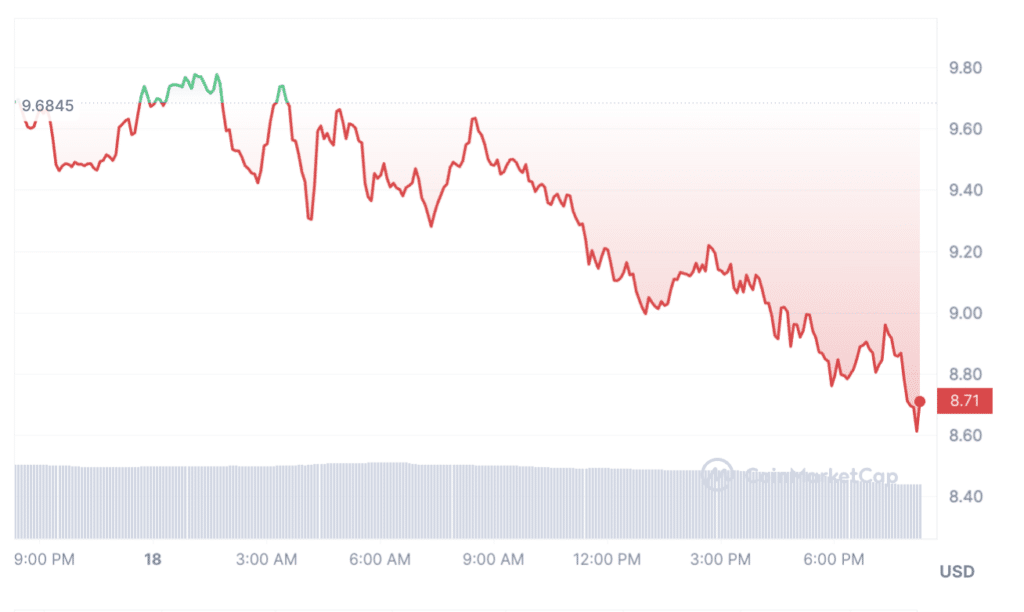Worldcoin’s team claims its activities are entirely legal and comply with current legislation in the countries where the coin is represented.
In a March 18 post, the Worldcoin team admits that the project is designed to fully comply with all laws and regulations governing the collection and transfer of data. Worldcoin referred to two industry bills: the European General Data Protection Regulation (GDPR) and the Argentine Law on the Protection of Personal Data.
“Worldcoin operates lawfully in all of the locations in which it is available.”
The Worldcoin team
The firm said it works towards full project transparency and does not distribute the resulting biometric data, emphasizing that the scanned iris is used only for user verification.
Over the past 24 hours, against the backdrop of the publication, the native token of the WLD project fell by 10% to $8.71, according to CoinMarketCap. Over the past seven days, the token has also shown negative dynamics, dropping in price by 9.6%. The fall occurred shortly after the rapid growth of WLD, as over the past month, the token has risen in price by 40%.

Worldcoin’s comment comes amid the Spanish regulator’s decision to ban the company’s activities in the country, which Worldcoin tried to appeal but was denied. The judge found the order to suspend Worldcoin justified, given the risks associated with biometric data, but expressed concern about iris scanners’ impact on data subjects’ rights.
The firm also faced regulatory pressure in other countries, particularly Germany, France, South Korea, and Kenya.
This article first appeared at crypto.news

